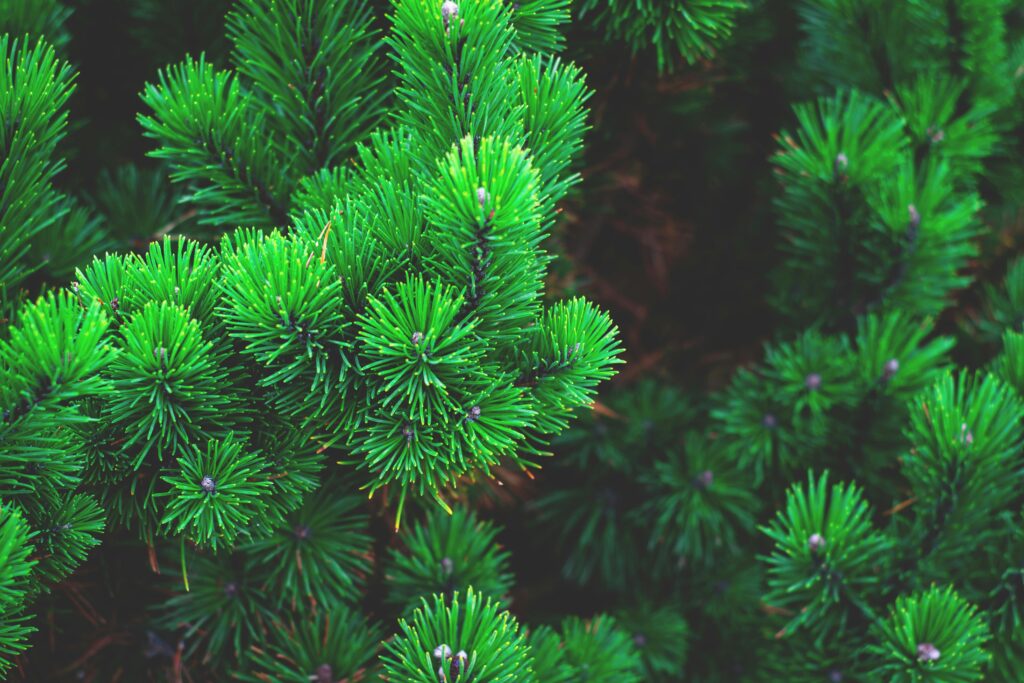Retired Couple With Real Life ‘Money Tree’ in Garden Produce Seeds for First Time That Are Worth Over $6k

We grow up hearing the phrase “money doesn’t grow on trees.” It’s meant to ground us, to remind us that wealth comes from work, not miracles. Yet in a small English garden, a retired couple has quietly proven the saying wrong. After fifteen years of care, their backyard tree once thought to have vanished from Earth alongside the dinosaurs has produced seeds worth more than six thousand dollars.
This isn’t some quirky financial scheme or lottery win. It’s the story of the Wollemi pine, a living relic from a prehistoric world, and the patience of two people who believed enough in its potential to nurture it year after year. What began as a humble sapling has now blossomed into both a symbol of endurance and a rare reminder that sometimes, the extraordinary hides in the most ordinary places.
Couple prove that money really does grow on trees as rare product earns thousandshttps://t.co/8N3hAgTvCu pic.twitter.com/WZuCrXANPR
— Daily Star (@dailystar) August 23, 2025
The Surprise in a Garden
For years, Pamela Thompson kept a quiet watch on the odd-looking cones that dangled from her tree. She had been told that the female cones usually release their seeds in late August or early September, so she waited. This summer, though, nature moved ahead of schedule. The season’s unusual dryness pushed the process forward, and one morning in April, Pamela reached up to touch a cone. To her astonishment, a cascade of seeds tumbled into her cupped hands.

That moment was more than gardening luck it was history unfolding in her backyard. Five large cones had matured, each producing nearly a hundred seeds, with more still developing. After fifteen years of patient care, their Wollemi pine had rewarded them with its first harvest. Pamela, a retired police officer, described the experience with awe: “It was very exciting actually collecting the seeds from such an ancient tree that lived when dinosaurs roamed.”
Her husband, Alistair, a retired spinal surgeon, saw the humor in it. Looking at the handfuls of valuable seeds, he couldn’t resist echoing the old saying: “It really does prove that money can grow on trees!” Together, they realized they weren’t just tending a garden anymore they were caretakers of a living relic that had suddenly offered them both wonder and wealth.
What Exactly Is a Wollemi Pine?

The Wollemi pine isn’t just another tree. It is a botanical time capsule, a living fossil whose roots stretch back more than 200 million years. Fossil records show that this species thrived when dinosaurs roamed the Earth, yet for millions of years it was believed to be extinct vanished along with creatures like the T. rex.
That assumption shattered in 1994, when a bushwalker in Australia stumbled upon a small grove hidden in a remote gorge west of Sydney. The discovery was hailed as one of the most extraordinary botanical finds of the twentieth century. Sir David Attenborough himself called it thrilling to encounter “this rare survivor from such an ancient past.” Fewer than one hundred trees remain in the wild, making it one of the rarest species on the planet.
The tree’s name comes from the Aboriginal word “Wollemi,” meaning “watch out, look around you.” Its presence is a reminder to pause, to notice, and to respect the resilience of life. Despite fire, climate change, and centuries of disappearance from human sight, the Wollemi pine endured. Today, every cultivated sapling is part of a global conservation effort to protect this ancient species from slipping away forever.
A Story of Care, Patience, and Timing

When Pamela and Alistair planted their Wollemi pine in 2010, it was barely 18 inches tall an unassuming sapling tucked into their Worcestershire garden. At the time, it was little more than a curiosity, a relic sold through a shopping channel, bought for under a hundred dollars. They had no idea it would grow into a thirteen-foot sentinel of patience and persistence.
For fifteen years, the couple tended to it like any gardener would: watering, pruning, and quietly hoping it might one day reveal its hidden potential. The Wollemi is no ordinary evergreen it grows slowly, taking years to mature, and even longer before showing signs of reproduction. Pamela in particular kept a close watch on the female cones, waiting for the right moment. She learned that seeds typically fall in late summer, but this year’s unusual dry spell shifted nature’s schedule.
When the seeds finally released into her hands, it was more than a gardening milestone. It was the culmination of a decade and a half of patient care. What looked like an overnight miracle was, in reality, the slow reward of time and dedication. “It was very exciting actually collecting the seeds from such an ancient tree that lived when dinosaurs roamed,” Pamela said.
Economics Meets Conservation
When word spread that the Thompsons’ Wollemi pine had produced seeds, it wasn’t just gardeners who took notice. Each seed is worth up to $13, and with five cones producing nearly one hundred seeds each, their first harvest alone carried a value of more than $6,000. If future seasons are equally fruitful, the couple could see tens of thousands of dollars’ worth of seeds drop from their tree in the years to come.
Yet Pamela and Alistair see this windfall not as personal fortune, but as an opportunity. Rather than sell to the highest bidder, they plan to package the seeds into small, affordable bundles five or six at a time for just a few pounds each. The proceeds will go to charity, including the National Garden Scheme, which funds nursing and health initiatives. For them, this isn’t about chasing wealth. It’s about making the seeds accessible, encouraging others to plant and protect the species, and channeling the money toward causes that give back to the community.
Their decision stands in contrast to the market, where small Wollemi saplings can sell for well over $1,000. By keeping their seed packs inexpensive, they’re challenging the notion that rarity must always equal exclusivity. Instead, they’re using rarity as a vehicle for conservation and generosity.
The “money tree” may tempt people with visions of profit, but its true worth lies in its power to fund good work and to safeguard an ancient species for generations to come.
Why This Tree Matters Beyond Money
There is something quite magical about the new growth on our wollemi pine in the late evening sunshine 🌞 pic.twitter.com/kkAEf6a3SH
— Mike Clifford (@MikesRarePlants) June 16, 2024
It would be easy to stop at the headline: a retired couple discovers seeds worth thousands of dollars in their backyard. But the real story reaches further. The Wollemi pine is one of the rarest trees on Earth, with fewer than one hundred surviving in the wild. Their survival is constantly threatened by bushfires, invasive pathogens, and the rising temperatures of a changing climate.
This is why each cultivated tree matters. Every cone, every seed harvested and replanted, is part of an international effort to safeguard the species. In recent years, young Wollemi pines have been distributed to botanical gardens across the UK, Europe, and even the United States to study how the species adapts outside its native Australia. Conservationists see the tree as a symbol of resilience and as a reminder that biodiversity cannot be taken for granted.
The Thompsons’ garden, then, is more than a curiosity it has become part of a global conservation story. Their decision to sell seeds not for profit but for accessibility and charity aligns with this larger mission: ensuring that the Wollemi pine isn’t just a relic of the past, but a living bridge to the future.
In a world where 34 percent of conifer species are endangered, the lesson is clear: the survival of ancient trees like the Wollemi isn’t just about rarity. It’s about protecting the genetic memory of our planet, safeguarding the resilience of ecosystems, and honoring the deep time that connects us all.
Planting Seeds That Outlive Us
The Thompsons may have started with little more than curiosity and a small sapling, but what has grown in their garden is far bigger than they ever imagined. Their Wollemi pine doesn’t just challenge the old saying that “money doesn’t grow on trees” it proves that some of the most valuable things in life take years of patience, quiet care, and faith in the unseen.
What they hold in their hands is not just a harvest of seeds, but a harvest of possibility. Each seed carries the chance to extend the life of a species that predates humanity itself. Each pack sold has the power to fund health initiatives and inspire others to see nature not just as scenery, but as heritage worth protecting.
We often chase quick results in life, forgetting that some miracles take decades. The Wollemi pine reminds us that true value isn’t measured in dollars, but in endurance, in generosity, and in what we choose to pass on. To plant a seed today whether in soil, in community, or in ourselves is to take part in a story that will continue long after we’re gone.
The Thompsons’ garden is proof: the seeds of tomorrow are already in our hands. The question is what we’ll do with them.
Loading...

